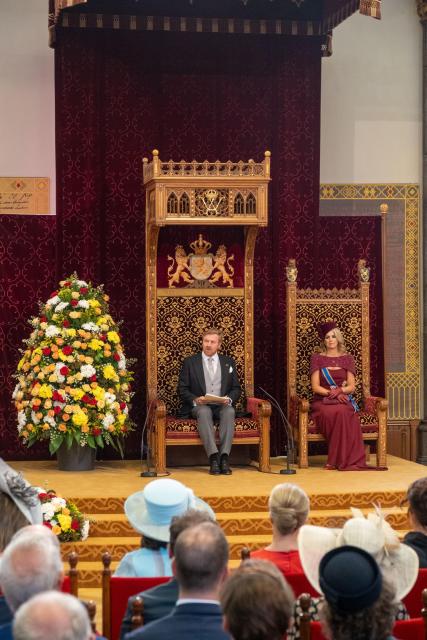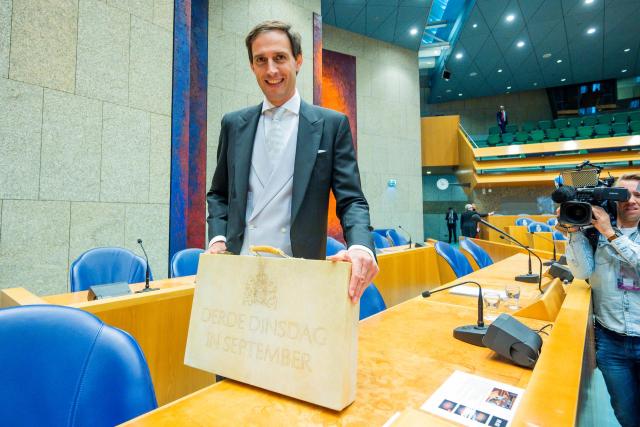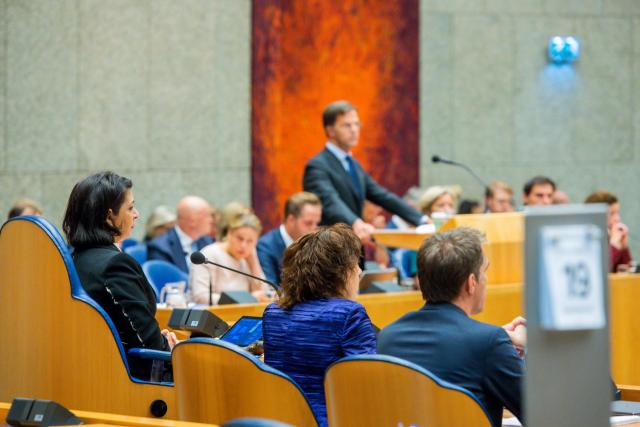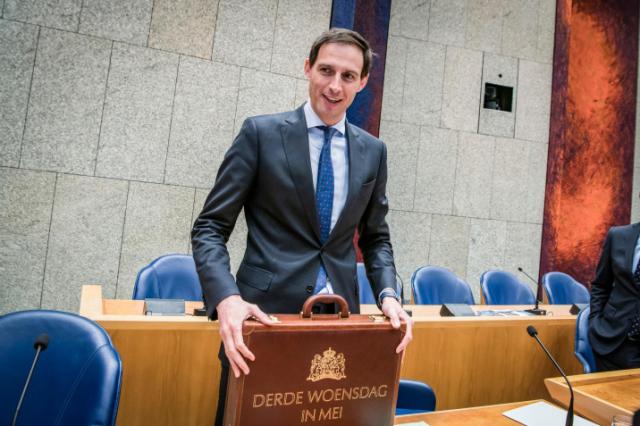From Prince's Day to Accountability Day
The third Tuesday in September is "Prince's Day" (Prinsjesdag) in the Netherlands. On that day, in his capacity as Head of State, King Willem-Alexander delivers the so-called "speech from the throne" (troonrede) in the Hall of Knights in the Binnenhof in The Hague, on behalf of the government. Afterwards, the Minister of Finance presents his famous "third-Tuesday-of-September"-briefcase to the President of the House of Representatives. This briefcase contains the Budget Memorandum and the national budget. Prince's Day is an important day in Dutch politics, as it marks the start of the parliamentary year.
-
The speech from the throne
As Head of State, King Willem-Alexander delivers the so-called speech from the throne on Prince's Day on behalf of the Dutch Government. In his Speech, the King sets out the state of play in the Netherlands and the government's plans for the coming year.

-
The presentation of the national budget and the Budget Memorandum
After the speech from the throne and the traditional cheering of the monarch "Long live the King, hurray, hurray, hurray", the King leaves the Hall of Knights. The members of the House of Representatives then make their way to the Plenary Hall of the House, where the minister of Finance presents his "third-Tuesday-of-September"-briefcase. The briefcase contains the national budget and the Budget Memorandum.

-
General debates
Immediately after Prince's Day the leaders of the parliamentary groups discuss the headlines of the Budget Memorandum and the national budget. This debate is called the "General Financial Debate on the Budget Memorandum".

-
Budget cycle
On 1 January, the budget year begins, during which the government departments will implement their budgets. The House of Representatives monitors whether the government is keeping its promises. The process of preparing, drafting and discussing the budget and accounting for its implementation is called the budget cycle.

-
The Spring Memorandum
In the ‘Spring Memorandum’, the minister of Finance reports on the progress made in government expenditure and revenue. In combination with the Budget Memorandum and the Autumn Memorandum, the Spring Memorandum offers an overall statement of the state's finances.

-
Framework letter
The minister of Finance sends the ‘framework letter’ to his fellow-ministers at the end of March or the start of April. The framework letter relates to both the budget for the current year and the budget for the following year, which the government will present later that year on Prince's Day.
-
The end of the budgetary year
The budgetary year expires on December 31st. Early in the next year the government draws up an annual report, to be discussed by the House on Accountability Day in May.

-
Accountability Day
The budget year ends on 31 December. The annual report is drawn up early the following year. The House of Representatives debates this annual report in May, on ‘Accountability Day’.
